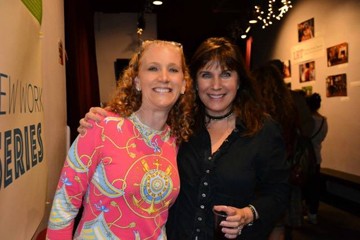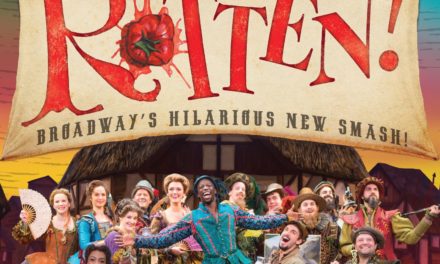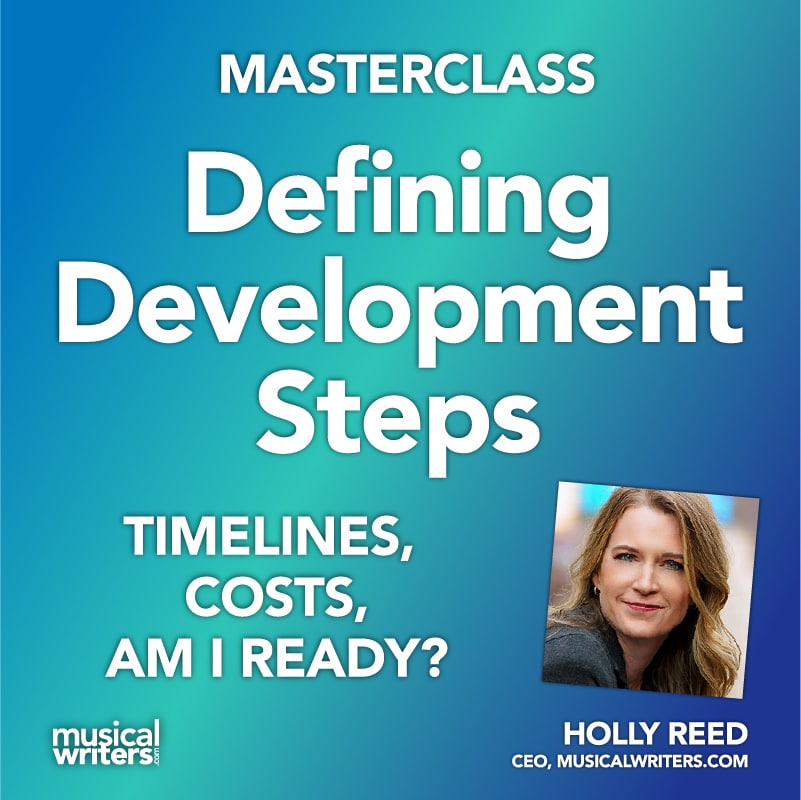The people who created the musical Wicked did many things right. They ended up with a mega-hit show that has run over 15 years on Broadway and played in almost every part of the world. A few of their approaches are offered on the Official Wicked YouTube channel video on Book Writing.
Note that “book,” in this case, means the narrative story of the drama. Winnie Holzman initially developed Wicked‘s book in meetings with composer-lyricist Stephen Schwartz, and the show’s lead producer, Marc Platt. Holzman fleshed out the scenes and refined the book over several years as part of the collaborative effort.
I had a chance to interview Schwartz, Holzman, and Platt while working on Defying Gravity. Below are three writing tips from Wicked creators based on my experiences and interviews. (The phrasing is my own. I also include quotes from Holzman and Schwartz.1)
1. Be inspired by models but don’t stick strictly to the source material.
In the video Schwartz, Holzman, and Platt talk about how they related to their source material, the novel Wicked: the Life and Times of the Wicked Witch of the West that itself was a spin on L. Frank Baum’s The Wonderful Wizard of Oz. They each explored the novel Wicked (for which the producer already held the stage adaptation rights) and then, essentially, set it aside.
This may sound like an easy enough thing to do, but how many movie adaptations have you seen for which you questioned why the writers stuck so closely to a novel or why they departed so boldly? How many variations on Shakespeare’s plays have you seen and wondered if there might be other choices? There’s a line to walk, especially if the author of the original material is still alive. Being open to navigating either side of the line for a while is helpful.
Wicked‘s writers also borrowed ideas from models besides the novel Wicked. For example, Holzman found that the movie Clueless was an inspiration for the makeover scene between the two lead characters.
2. Write what fascinates you and follow the path of least resistance
For Schwartz and Holzman, working with the Wicked material wasn’t a job to be slogged through. They allowed themselves to focus on what was naturally drawing their attention. It wasn’t about jumping into chapter 1 of the novel and writing scene 1 of the musical from there.
As Winnie Holzman said when I interviewed her: “I tried to just respond to what in the novel was leaping out at me. For me it was the two girls and just the fact that amongst all the brilliant things Gregory Maguire did in the novel, he had made them roommates in college, which I think is really a stroke of genius.” Holzman and Schwartz talked for hours about how much this meant to them and what the implications were. “So we felt that we really had to start from there, because that was what gripped us both emotionally, humorously, in every way, that was so right,” Holzman remembers.
As for getting started on a score, Schwartz says: “I tend to follow the ‘path of least resistance,’ rather than try to write sequentially, like the advice to Alice in Alice’s Adventures in Wonderland: ‘Begin at the beginning and go on till you come to the end; then stop.’ When starting the score for a show, I tend to start with the song that seems easiest to me, the one that comes most naturally….It’s most important just to open the door and step into the show somewhere.” Winnie Holzman and Stephen Schwartz from a trip to see Wicked in Finland
3. Explore questions, linger in mystery, and allow bad drafts
As Winnie Holzman says in the video, a lot of writing is about “being able to have questions and not have answers yet.” One of the people who inspired her was E. L. Doctorow who wrote Ragtime and other historical novels. Holzman borrows a simile from him. “Writing is like driving at night in the fog. You can only see as far as your headlights, but you can make the whole trip that way.”
Wicked‘s writers peered into the fog. They found their way, even though it took almost four years of revisions and testing to get it right.
Stephen Schwartz has developed various strategies and attitudes that help him survive the long journey of writing a musical. He says, “I have some sort of specific goal in mind for whatever it is I’m doing. And everything on the road to that goal is process. And I don’t really worry about how long it takes to get there or how many stages or crappy stuff it has to go through. That’s just process, and you’re just on the way to the goal. And sometimes I’ve felt that I was there and then discovered by getting feedback that I wasn’t, and initially sometimes that’s very disheartening and exhausting; wearying.” But in the end, the whole process proved useful and Wicked emerged as a triumph.
Have you developed any helpful strategies or processes to help you stay focused and interested through the long musical writing process? We have thousands of readers who could use your encouragement! Share your ideas in the comment section below.
Footnotes
- Reference for the above quotes: de Giere, Carol. Defying Gravity, Applause Theatre and Cinema Books, 2008.


















This was very inspiring. I have run into son many dead ends with my story. It has gone on for two years now. I do believe this story has to be told, but boy has it taken a toll on my drive. I do bounce around from scene to scene when I get lost with where to go or what to say.
This let know I’m not alone.
Thank you for the nudge.
Thanks so much for the comment and glad you found some encouragement here. Writing musicals is a long, tedious process. It is not for the faint of heart! Hang in there, the finished product will be well worth it!
Like that old saying, “how do you eat an elephant? One bite at a time.”
Becky and I work on our musical at least a little bit every day. Sometimes together and sometimes alone. But in any case, if we run into a road block or feel that we’re just too tired to work we will put it aside. And if we are inspired we will just keep running with it until we have to stop. At least a little bit every day. Which, sometimes turns into a lot in one day!